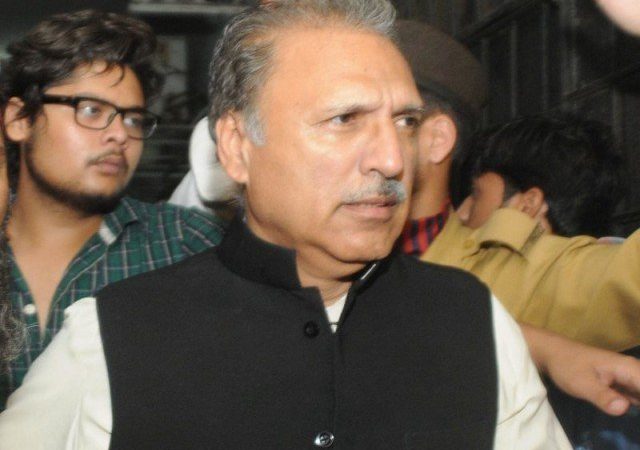PTI nominates Arif Alvi as next President of Pakistan

ISLAMABAD, (DNA) – Pakistan Tehreek e Insaf has nominated Arif Alvi name for next President of Pakistan, on Saturday.
The decision was taken during a consultative meeting chaired by the party chairman Imran Khan at his residence in Bani Gala, who ultimately approved to nominate Farman for the coveted post.
In the July 25 general elections, Farman won the PK-70 and PK-71 Peshawar constituencies. He, however, lost the PK-70 seat after a vote recount to Awami National Party’s (ANP) Khushdil Khan.
Mr. Khan consulted party members on the matter and decided Alvi’s name for the president, said senior PTI leader Fawad Chaudhary.
According to sources, consultation for the key post was going on for last three days and Imran had reportedly decided to finalize the name after his oath-taking.
Mr. Alvi won NA-247 (Karachi, South-2) in the July 25 elections with 91,020 votes defeating Syed Ali Zaman Jafferi of Tehreek-e-Labbaik Pakistan who could only garner 24,680 votes.
It is reported that Mr. Khan tried to represent all four provinces on key positions. As PTI chief himself belongs to Punjab, and he picked National Assembly Speaker from Khyber Pakhtonkhwa, while deputy speaker belongs to Balochistan, and President (Arif Alvi) is going to be from Sindh.
The Election Commission of Pakistan (ECP) on Thursday issued a schedule for the presidential election, setting Sept 4 as the day of the ballot.
President Hussain’s five-year term is set to expire on September 9. According to the Constitution, the presidential election must be held at least a month prior to the expiry of the incumbent’s term, which in this case would have been August 8.
The president is elected by an electoral college comprising members of the Senate, National Assembly and four provincial assemblies. Voting is held through a secret ballot.
Ordinarily, the presidential election is held either a month after the General Election, or at least a month before the expiry of the president’s tenure.
Related News

Former Punjab CM Manzoor Wattoo passes away
He also served as Punjab Assembly speaker before assuming chief executive office Bureau Report LAHORE:Read More

Arrested accused Parvez confesses to killing Dr Warda
PESHAWAR, Dec 16 (APP/DNA): In a major development in Dr. Warda murder case, the arrestedRead More


Comments are Closed